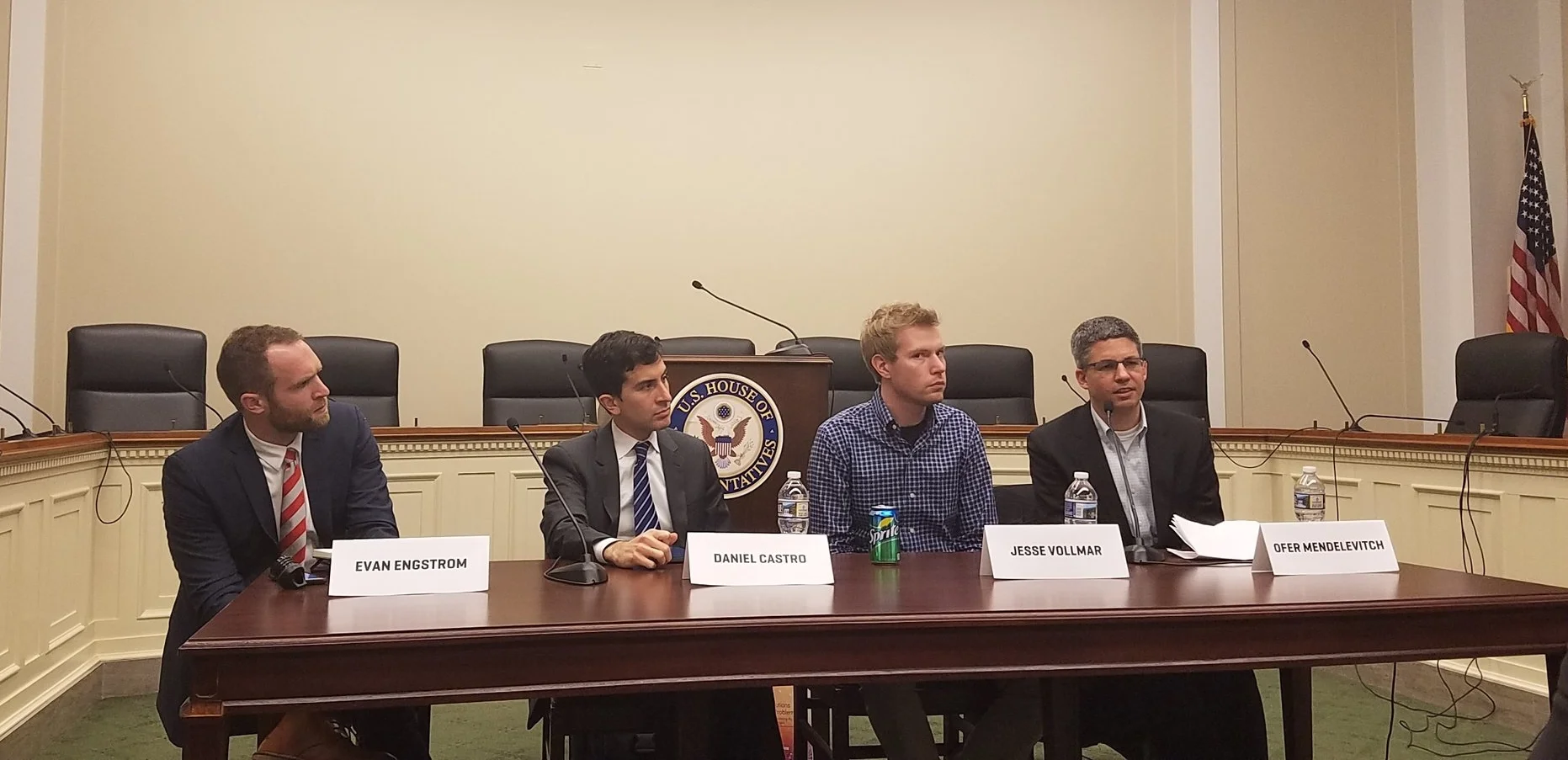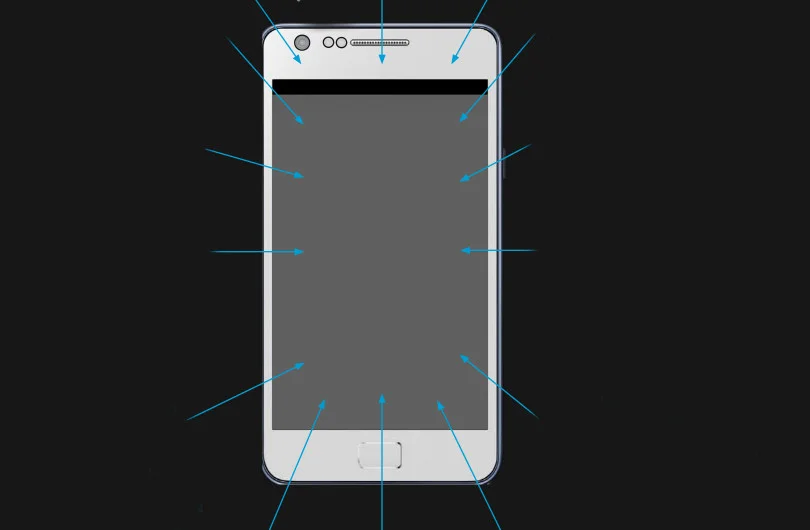I’m Jen Fox, Engine’s Manager of External Affairs. I am excited to work with America’s startups across the country, and I want to get to know what issues matter most to you and your startup. Can you fill out this survey?
Leaving Startups in the Slow Lane
Internet service providers would like you to think there’s broad agreement on net neutrality because everyone agrees cable companies shouldn’t block or slow access to websites and online services. But mention the words “paid prioritization” and you’ll get a much different reaction. The issue is sure to divide the House Energy and Commerce Committee during its hearing on the topic next week.
A Call for Cross-Border Cooperation
Guest Post: Loss of Net Neutrality Puts Innovation at Risk in Hawaii
The world of innovation is at an exciting point in time, unrivaled by anything we’ve ever seen before. The cost of launching a startup has never been cheaper and the process has never been more efficient. This is largely due to reduced business costs (e.g. server fees) resulting from advancements in technology services and internet access. What once cost a startup hundreds of thousands to millions of dollars in capital expenditures just to get to the starting line is now accessible to almost anyone for much, much less. With the Internet, the distance between business and consumer has also shortened drastically; marketing directly to your customer demographic across the world is now possible. Additionally, information in the form of advice, mentoring, and best practices is now abundant and accessible. What was once restricted to Ivy League schools or knowledge bases such as New York and San Francisco is now available for free online.
Panel Round-Up: Design Patents and Defining the Article of Manufacture
The panel discussion, “Design Patents and Defining the Article of Manufacture – One Year Later,” was moderated by Julie Samuels, President of the Board at Engine Advocacy and Executive Director at Tech:NYC. The expert panel also featured Charles Duan, Senior Fellow and Associate Director of Tech and Innovation Policy at R Street Institute; G. Nagesh Rao, a 2016 USA Eisenhower Fellow and former Patent Examiner and Senior Policy Advisor at the USPTO; and Matthew Levy, former Patent Counsel at the Computer and Communications Industry Association (CCIA).
Reflecting on Diversity in Tech on MLK Day
Today, as we celebrate Martin Luther King Jr., one of the most ardent advocates for the advancement and equality of African Americans in history, we should reflect on the continuing injustice in our socioeconomic system and contemplate how we can more effectively work to close the racial entrepreneurship gap.
The FCC’s “Facts” vs. Reality on Net Neutrality
Ahead of the Federal Communications Commission’s vote late last week to dismantle 2015 net neutrality rules — which prevented ISPs from blocking or slowing access to certain websites — FCC Chairman Ajit Pai continued to misrepresent his plan as a boon to innovators and Internet users across the country instead of the ISP industry sell out it really is.
Startups Speak Out on Net Neutrality
TechFreedom + Engine: How SESTA Fails to Counter Sex Trafficking
Engine Celebrates Women's Small Business Month
Section 702 Spying and Its Impact on Startups
Engine Support for Micro Offering Safe Harbor Act
Visiting the Rust Belt with Rise of the Rest
Our Takeaways from the Senate Hearing on SESTA
The Senate Commerce Committee held a hearing on a new bill aimed at making it easier to penalize websites and online services that facilitate sex-trafficking.
While much of the hearing focused on the bipartisan and unanimous agreement that sex-trafficking is a tragedy that needs to be addressed, some lawmakers and witnesses noted the potential unintended consequences of the Stop Enabling Sex Trafficking Act (S.1693) as currently drafted.
The Top Ten Myths about SESTA’s (S. 1693) Impact on Startups
As the Senate begins to consider the Stop Enabling Sex Trafficking Act of 2017 "SESTA," we have have tried to debunk some of the myths the bill's sponsors are saying about the legislation. Learn more about what you can do to protect Section 230 here.
Startups Head to the Hill to Fight for Net Neutrality Protections
Historic day of action for Net Neutrality breaks records
HBO’s ‘Silicon Valley’ tackled an issue that’s all too familiar to startups: The threat of frivolous patent litigation
Event Recap: Private Solutions for Public Problems
Earlier this month, Engine held its first briefing of the year: a conversation around the ways that startups are harnessing big data to drive innovation and develop targeted solutions for some of society’s greatest challenges. The event was headlined by Reps. Blake Farenthold (R-TX) and Derek Kilmer (D-WA), who were joined by a distinguished panel of startup leaders and policy analysts.
In Apple v. Samsung, SCOTUS Sided With Reason Over Rounded Corners
After almost five years of legal volleying, the U.S. Supreme Court finally issued a decision in the highly anticipated Apple v. Samsung design patent case late last year. On Tuesday, Dec. 5, the court delivered a unanimous decision in favor of Samsung, finding that damages for design patent infringement may be limited to revenues attributable to a component of an article of manufacture rather than profits from the entire article. While this is an important victory for startups and innovators—from global corporations to inventors toiling in garages—courts must still work to provide the guidance and clarity necessary to prevent bad actors from abusing the patent system to the detriment of innovation. And they have a new opportunity to do so: On Feb. 7, the U.S. Court of Appeals for the Federal Circuit took a significant step in that direction by remanding the Apple v. Samsung case to the Northern District of California court.

























